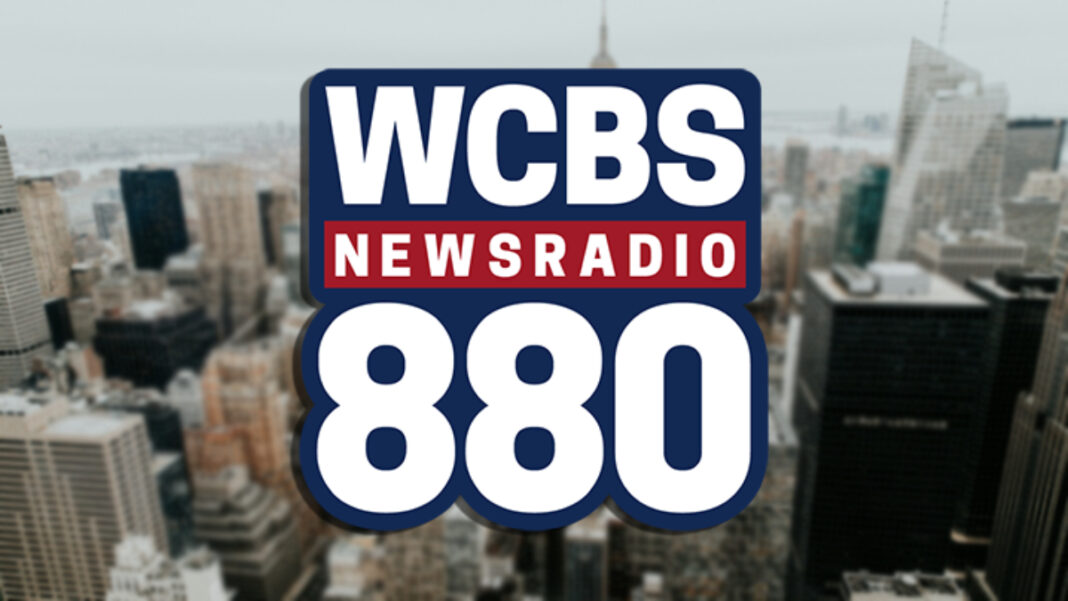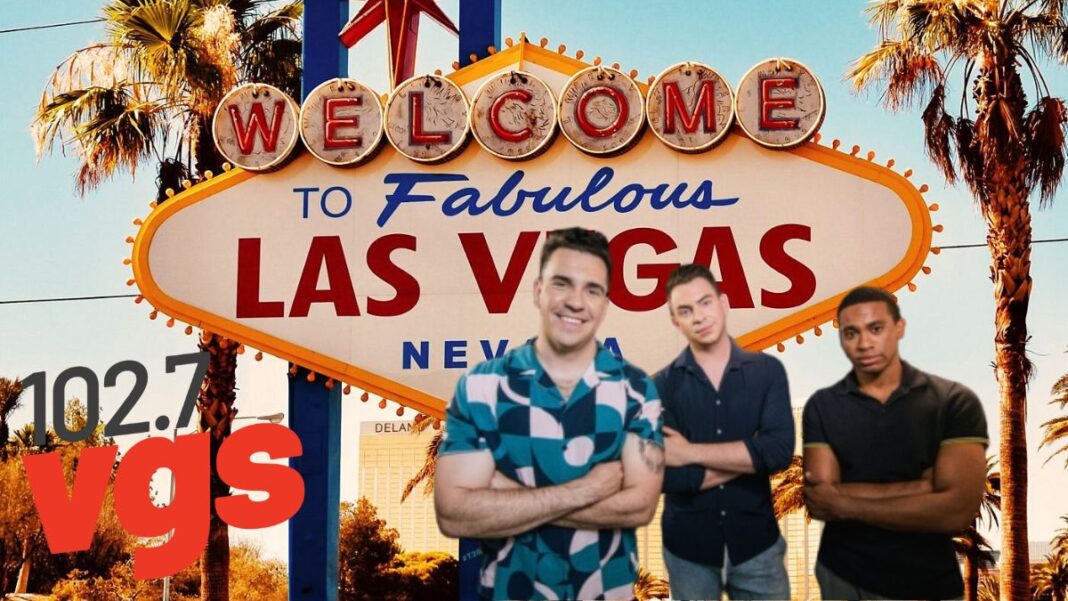In one of the more surprising announcements in recent memory, Audacy announced WCBS Newsradio 880 would cease operations on Monday, August 26th, after nearly 60 years in the all-news business, as part of a deal with Good Karma Brands to bring ESPN New York to the AM signal.
It was so surprising, in fact, that when I was told of the move. I triple-checked to make sure I wasn’t losing my mind. How could WCBS 880, a venerable, iconic brand, be on the chopping block as part of a deal with the competition?
But, when you look at the whole picture, it does make sense.
First of all, Audacy New York was operating two all-news brands: WCBS and 1010 WINS. And when WINS received an FM simulcast in 2022, the company tipped its hand as to which station was the priority and which station was expendable.
Secondly, and probably most importantly, when you look at the financial results — for every radio company, not just Audacy — it isn’t exactly a rosy picture. I don’t know how many times in the last week I’ve seen “(Insert Radio Broadcaster Here) sees slight revenue dip in second quarter.”
In one company’s case, I saw that their 2024 second-quarter results were a revenue dip, as were their 2024 first quarter, 2023 fourth quarter, their 2023 third quarter, and I could go on and on and on.
And that’s where the issue lies. Despite finishing 2023 as BIA Advisory Services’ projected 10th highest billing station in America ($29.7 million), WCBS Newsradio 880 was still on the chopping block.
News radio costs a lot to operate. You need anchors, reporters, producers, board ops, writers, digital content specialists, managers, and executives to oversee the day-to-day operations. Radio is a tough business right now, and no one can really argue otherwise.
But if a station in the top 10 billing brands of 2023 — which was actually an increase compared to 2022 — can’t make it in today’s radio climate, what does it say for the future of the all-news format? Because I don’t know that it’s exactly a rosy picture.
It isn’t really the first time Audacy has dumped out of the all-news game. In the last several weeks, 1080 KRLD in Dallas has shifted away from all-news, and turned into a news/talk brand with shows hosted by Chad Benson and Will Cain joining the daily lineup. I know the messaging has been that the station is still centered on news, and those long-form shows are focused on news, but you can’t spit on my cupcake and tell me it’s frosting. KRLD had previously been a “strictly report the news of the day to Dallas/Fort Worth listeners,” and now it’s not that. And that’s ok! But to pretend as if it didn’t abandon what it was doing previously — even if might be for the better — is disingenuous.
To be truthful, I had never really heard much all-news radio before joining Barrett Media. I live in Ohio, where we don’t have a commercial all-news radio station. The closest station that utilizes the format is — another Audacy station — 950 WWJ in Detroit. But I’ve grown to really enjoy the format due to its presentation style. Fast-paced, no-malarkey delivery, coupled with interesting storytelling is the exact recipe for success in 2024. While speaking with people in the genre, I’ve often compared it to TikTok. Short, sweet, to the point, and yet interesting. It’s addictive.
But if stations like WCBS and KRLD aren’t going to be able to stay in the format, what does that mean for others like WTOP, KNX, WBZ, or WBBM, among others?
Those stations, brands, markets, and communities deserve to be served by fantastic news radio brands. Like it or not, people will use the venerable brands — of which many news/talk and all-news brands fit the bill — as a barometer for the health of radio. If the longstanding, easily identifiable, iconic/venerable brands are doing well, radio is likely seen to be doing well by advertisers. But if those marketers see that stations they may know of from other markets, stations like WCBS Newsradio 880, and hear that they’re going the way of the dodo, that isn’t exactly a glowing bill of health for the medium. And a cycle that already is a negative for the industry continues.
So it makes me fearful. I freely admit it. Because if stations that we’ve collectively put on a pedestal — and look at the reaction around the news, WCBS was on a pedestal — are no longer viable, what does it say about other brands? Other formats? Other companies, even? And I’m sure you could argue that WCBS was “viable”, but Good Karma Brands made them an offer they couldn’t refuse. I hope to my bones that that’s what happened. But I can’t imagine there was a number big enough to say “Yep, we’re gonna toss a top 10 billing station to the wayside, collect a check from a competitor, and save the money we would have doled out on salaries for WCBS employees” while simultaneously arguing that the brand was “viable.”
I will die on the hill that, yes, radio should still do weather, traffic, sports, and news updates. Because if the prevailing thought is “People can just get it on their phones,” you know what else they can get on their phones? Music. Podcasts. Entertainment of any type. If you push people to their phones, they’re likely to find something else, something more personalized, something more on-demand than live and local radio. And that isn’t something that is going to help the industry going forward.
All-news radio is at a crossroads. Maybe more specifically, Audacy — which operates the overwhelming majority of stations that fit that bill — is at a crossroads. It can dig its heels in and say “This format and these brands are worth saving. These cities, metros, and communities deserve what we can provide them.” Or, it can throw in the towel, appease investors, and say “It’s much easier to cut costs, abandon the AM dial, and forge on with a focus on lower-cost formats like music and sports talk.”
And it’s easy for me to have an opinion on the topic, right? It isn’t my money or career at stake. But it is an industry and genre/format that I’ve grown to love and appreciate. And I surely don’t want to see that vanish anytime soon. Principles never paid someone or some company’s mortgage. But they are worth having from time to time.
I’ve always believed in the famous John F. Kennedy speech where he said, “We choose to go to the Moon in this decade and do the other things, not because they are easy, but because they are hard. Because that goal will serve to organize and measure the best of our energies and skills, because that challenge is one that we are willing to accept, one we are unwilling to postpone, and one which we intend to win.”
Saving the all-news format will not be easy. It will be hard. But it will be worth it. And I hope we can pull together to not just keep it alive, but prosperous.

Garrett Searight is Barrett Media’s News Editor, which includes writing bi-weekly industry features and a weekly column. He has previously served as Program Director and Afternoon Co-Host on 93.1 The Fan in Lima, OH, and is the radio play-by-play voice of Northern Michigan University hockey. Reach out to him at Garrett@BarrettMedia.com.









Hi Garrett, I just finished reading this article and while I agree with your closing statement, I’m afraid it will not happen. The reason is because the driving force for the owners isn’t serving the communities, it is maximizing revenue and/or share holder value. Viewer/consumer service is replaced by viewer/consumer tolerance. And it isn’t just radio or television, it is business everywhere. In the medical field, doctors are more mechanics than healers and patient care is dictated by insurance rather than patient need. A well documented example can be found in the book “Flying Blind” where the leadership of Boeing made maximizing shareholder value the mission rather than building safe planes despite numerous warning from the people with a passion for the company and the industry. So until service to the customer becomes as important or more important then shareholder value, broadcasting the business will continue to lose value to the audiences it is supposed to be serving.